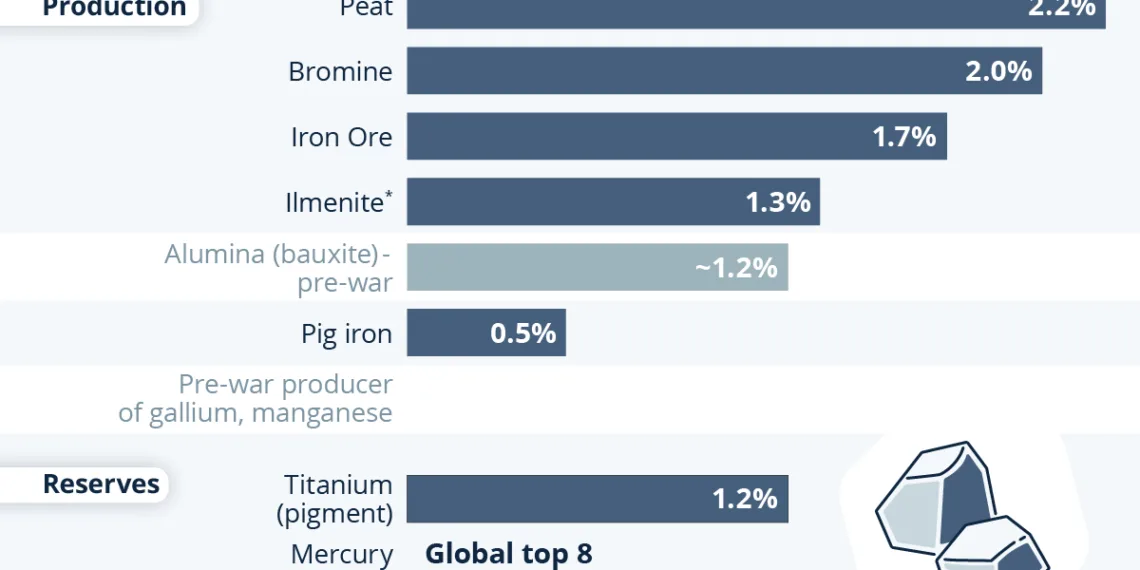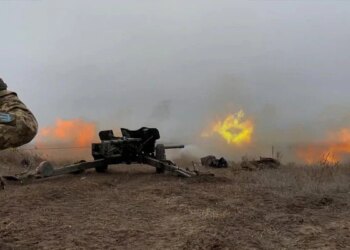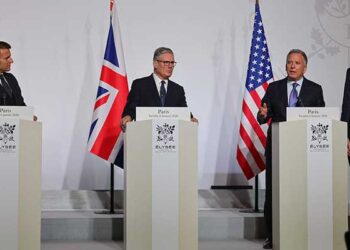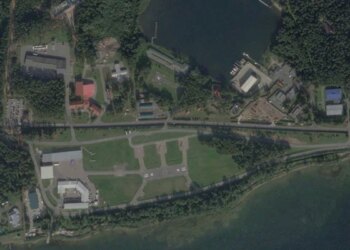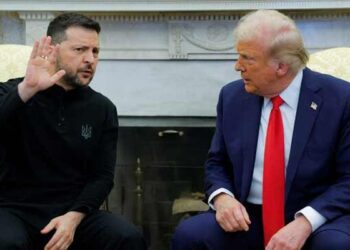Select Language:
Understanding Ukraine’s Mineral Wealth: A Key to Security and Reconstruction
Ukraine stands at an economic crossroads, influenced not only by ongoing conflict but also by its substantial mineral wealth. A recent proposal involving these minerals has drawn international attention, particularly surrounding discussions of security guarantees and economic support.
A Proposal for Peace: Leveraging Mineral Wealth
In recent weeks, the idea of utilizing Ukraine’s mineral resources as part of a peace deal has gained traction. This proposal was initially framed as a method to secure international support for Ukraine. Notably, former U.S. President Donald Trump suggested plans to acquire ownership stakes in Ukraine’s mineral resources, highlighting a potentially controversial path towards financial restitution for wartime aid.
Trump’s Economic Strategy
Trump’s proposition included a staggering $500 billion leverage against Ukraine’s mineral wealth, aiming for half ownership of its rare earth deposits. Despite being a proposed strategy during tumultuous times, these comments have caused significant backlash and serious damage to potential peace negotiations. Adding fuel to the fire were Trump’s criticisms of Ukrainian President Volodymyr Zelensky, further complicating the relationship between the U.S. and Ukraine amidst the war.
Ukraine’s Mineral Resources: Abundant Yet Underutilized
While the proposition of a minerals-based deal may seem attractive, it’s essential to clarify the nature and extent of Ukraine’s mineral wealth.
Rare Earth Elements: A Scarcity
Ukraine has an abundance of various minerals, yet it does not produce any rare earth elements, which are crucial for modern technology. The U.S. Geological Survey has documented limited reserves, indicating that the only known reserve is for scandium. This lack of documented resources presents a challenge in leveraging these minerals as a bargaining chip on the international stage.
Other Notable Minerals
Despite the absence of rare earth production, Ukraine is noted for its contributions to several specific mineral markets:
- Bromine: Ukraine produces 2% of the world’s bromine, which is primarily used as a flame retardant.
- Ilmenite: With a 1.3% share of global production, this titanium mineral is essential in the production of titanium.
- Titanium Pigment Reserves: Ukraine holds 1.2% of known titanium pigment reserves, a crucial component in various industries, including military applications.
Strategic Minerals and Their Impacts
Several minerals produced in Ukraine are critical for modern technological and military advancements:
- Gallium: Pre-war, Ukraine was a producer of gallium, which finds applications in semiconductors and biomedical technology.
- Alumina and Manganese: These minerals, vital for steel and aluminum production, experienced a production halt due to the ongoing conflict.
Traditional Mining Contributions
Ukraine also plays a role in traditional mineral production. The country is responsible for:
- Iron Ore: Accounting for 1.7% of global iron ore production.
- Pig Iron: Contributing 0.5% to the global supply.
- Peat: With a production share of 2.2%, used for various agricultural applications.
- Mercury Reserves: Ukraine ranks among the top eight globally in mercury reserves, which has applications in various industries.
Economic Indicators and Global Scale
Historically, Ukraine has represented a small fraction of global economic metrics. Covering just 0.4% of the world’s landmass, the country accounted for roughly 0.17% of global GDP in 2023, down from 0.21% pre-war levels. This tiny but significant economic footprint is critical in understanding both the potential and limitations of Ukraine’s mineral wealth in international negotiations.
Implications for Future Discussions
The current discussions underscore the intricate balance between leveraging natural resources for economic and security benefits while navigating through geopolitical dynamics. As Ukraine seeks to secure its future, the role of its mineral wealth will undoubtedly play a vital part in shaping both domestic policies and international relations.
The ongoing conflict has brought to light the complexities of resource management intertwined with national security, global alliances, and the quest for rebuilding a war-torn nation. As stakeholders reconsider their strategies, the eyes of the world remain on Ukraine, watching how its mineral resources could be harnessed for a more stable future.

